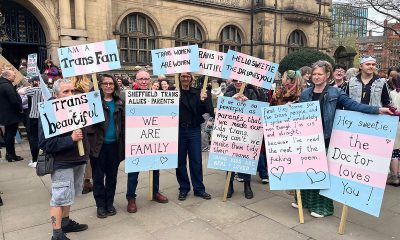News
High hopes as Obama prepares to meet with Russian gay activists
Many hope president will draw attention to country’s anti-gay propaganda law
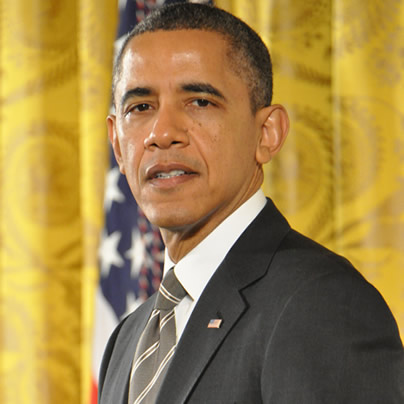
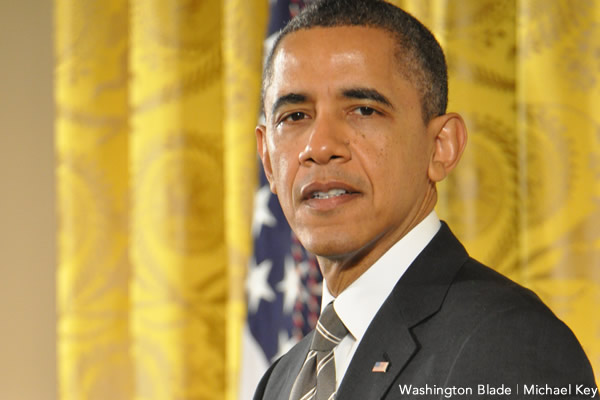
President Obama is set to meet with LGBT groups in Russia on Friday. (Washington Blade file photo by Michael Key).
President Obama is set to meet with a group of human rights advocates in Russia on Friday, including representatives of LGBT rights groups and many observers are hopeful that he will take the opportunity to express continued opposition to the country’s controversial anti-gay propaganda law.
During a stopover in Stockholm on Wednesday, Obama expressed solidarity with Sweden during opening remarks at a news conference by saying both the Nordic country and the United States have a shared belief in equality under the law, including for gay citizens.
“We share a belief in the dignity and equality of every human being; that our daughters deserve the same opportunities as our sons; that our gay and lesbian brothers and sisters must be treated equally under the law; that our societies are strengthened and not weakened by diversity,” Obama said.
Obama restated his support for LGBT equality as he prepared to meet with Russian human rights groups and LGBT groups during his visit to St. Petersburg for the annual G-20 summit.
A White House official told the Washington Blade that Obama intends to meet with “civil society representatives” during his trip on Friday and LGBT groups were invited to the meeting.
“The president will meet with Russian civil society leaders to discuss the important role civil society plays in promoting human rights and tolerance,” the official said. “Invited are representatives from groups supporting human rights, the environment, free media, and LGBT rights, among others.”
Obama meets with these activists — as well as leaders from G-20 countries — at a time when he’s pushing for military engagement in Syria over the use of the chemical weapons in the country. That issue will likely play a large role in the discussions — at least with leaders from G-20 nations.
But LGBT advocates who work on international issues told the Washington Blade the meeting with human rights activists provides a stage to draw attention to the condition of human rights in Russia, including the situation for LGBT people.
Innokenty “Kes” Grekov, an associate with the international group Human Rights First who covers Russia, said the administration initiated the meeting under pressure from U.S. groups.
“I think the president will articulate his Russia policy to the activists and express solidarity and gratitude for their work, once again affirming that Russia’s international human rights obligation, and its own constitution, must be protected and democracy advanced,” Grekov said.
Grekov predicted that Russian gay rights activists wouldn’t bring up anything in the meeting that they wouldn’t bring up in a meeting with their own President Vladimir Putin. Further, Grekov said he thinks they’ll tell Obama to resist calls to boycott the 2014 Olympics in Sochi — an idea that he already says he opposes.
“The activists scheduled to meet with Obama work on different issues, and gay rights will be discussed in the context of a wider human rights backslide in Russia,” Grekov added.
Mark Bromley, chair of the Council for Global Equality, said Obama’s meeting with gay rights activists is a monumental development and a potential instrument for change.
“It sends a message of solidarity, and I think it provides an opportunity for the president to connect directly with activists and the issues,” Bromley said. “He did that very effectively on the last trip to Africa, I thought, where he really spoke in a very personal, humble, firm way about these issues being serious human rights concerns.”
Grekov said Obama addressed a group of civil society representatives during a previous trip to Russia in 2009 while in Moscow for a bilateral summit. While some of those groups may have been working on gay issues as part of a larger portfolio, Grekov said he doesn’t remember any “LGBT-only” group taking part in the discussion.
Activists say the meeting is also an opportunity for Obama to step up U.S. opposition to Russia’s anti-gay propaganda law, which bans pro-gay propaganda to minors. The president already expressed opposition to the measure during a news conference in August when he said no one is “more than offended than me” over it.
Bromley said he hopes Obama will speak in Russia about the law “in a rather direct way” to highlight that the law actually harms the children that it intends to protect.
“The law was passed ostensibly to protect children,” Bromley said. “We know from recent evidence here in the United States and around the world that children are actually harmed by these sorts of laws, that they encourage bullying, they encourage some of the taunting and humiliation that leads to violence and suicide. I hope that he would speak directly to the fact that these laws are not the way to protect children.”
Grekov expressed a similar sentiment in terms of asking Obama to continue engaging with Russia, while being more vocal about the anti-gay law as well as issues facing LGBT advocates in Russia.
“He’s taking a stance by meeting with civil society and expressing solidarity, we’d like him to carry that message to the Russian president and the Russian media, too,” Grekov said. “Because the law has provisions affecting foreigners, President Obama and the State Department need to press the Russian authorities to clarify what they mean by ‘propaganda,’ because without understanding of the law it will be impossible for foreign visitors to ‘obey the law.'”
Obama is set to engage with human rights activists in Russia after the group Human Rights First published a report last week documenting abuses under the Russia LGBT law, titled “Convenient Targets,” that calls on the Obama administration to take more action.
Among the potential actions cited in the report are meeting with human rights activists, as Obama is set to do. Additionally, the report calls on the administration to direct the State Department to seek clarification on the anti-“propaganda” law because of its vague wording; lead a multilateral coalition to oppose discrimination and violence against LGBT people; and call for leadership from the U.S. Olympic Committee in opposing the law.
Putin denies Russia has anti-gay law
The anonymous White House official also said while there is currently no plan for a formal bilateral meeting with President Putin of Russia, the administration expects the two presidents to have an opportunity to speak in between meetings of the G-20. Last month, Obama cancelled a formal bilateral meeting planned with Putin, in part, as an administration official said, because of the anti-LGBT environment in Russia.
In an extensive interview published by the Associated Press on Wednesday, Putin said he has no problem with Obama meeting with human rights leaders and acknowledged it was part of U.S. diplomatic policy.
“On the contrary, we welcome it, so that there will be full understanding of whatever’s going on in our society, Putin was quoted as saying. “Of course it would be very good if the diplomatic service, the embassy, the special services, gave a full and objective picture of the state of Russian society, and not just look at it from one angle.”
Putin also said he doesn’t think the law will play a negative role during the upcoming Olympics as he denied that Russia has such a law “targeting people of nontraditional sexual orientation.”
“So you just said that, and you’ve created illusions among millions of viewers that we have these laws,” Putin said. “In Russia there are no such laws. In Russia there is a law forbidding propaganda of nontraditional sexual orientation among minors. That’s a totally different thing.”
The Russian president reportedly said that gay people in Russia have equal access to the workplace and their achievements are rewarded by the government with “prizes, medals, decorations.”
Putin further is quoted as saying the United States has its own work to do in advancing gay rights, saying being gay is a crime in some parts of the country, so the United States isn’t in a position to criticize other countries.
“You are aware, for example, that in several states, nontraditional sexual orientation is still considered a crime,” Putin reportedly said. “In particular, Oklahoma and Texas, I was told — maybe the people who told me that were wrong, but you check. And if that’s actually true, then it’s very strange that those who are trying to teach us aren’t an example worthy of imitation. And several NGOs have presented statistics that affirm that in certain American firms, people of nontraditional sexual orientation are discriminated against in terms of wages.”
No laws in Oklahoma or Texas criminalize homosexuality, although those states do have laws prohibiting recognition of same-sex marriage. Any state law prohibiting same-sex relations in those states would have been struck down by the 2003 U.S. Supreme Court decision in Lawrence v. Texas.
Grekov said in a statement following the interview that Putin is right that gay people enjoy the same rights and economic opportunities as everyone else, but maintained there are still problems.
“What Putin didn’t say is that Russia’s constitutional protections from discrimination for all have not translated in the day-to-day lives of Russia’s LGBT community, which continues to face intolerance and whose freedoms can be undermined through the recently adopted ‘propaganda’ law,” Grekov said.
Virginia
Youngkin calls on gay Va. GOP LG candidate to exit race over alleged ‘porn’ scandal
John Reid denounces ‘fabricated internet lie’ as anti-gay smear campaign
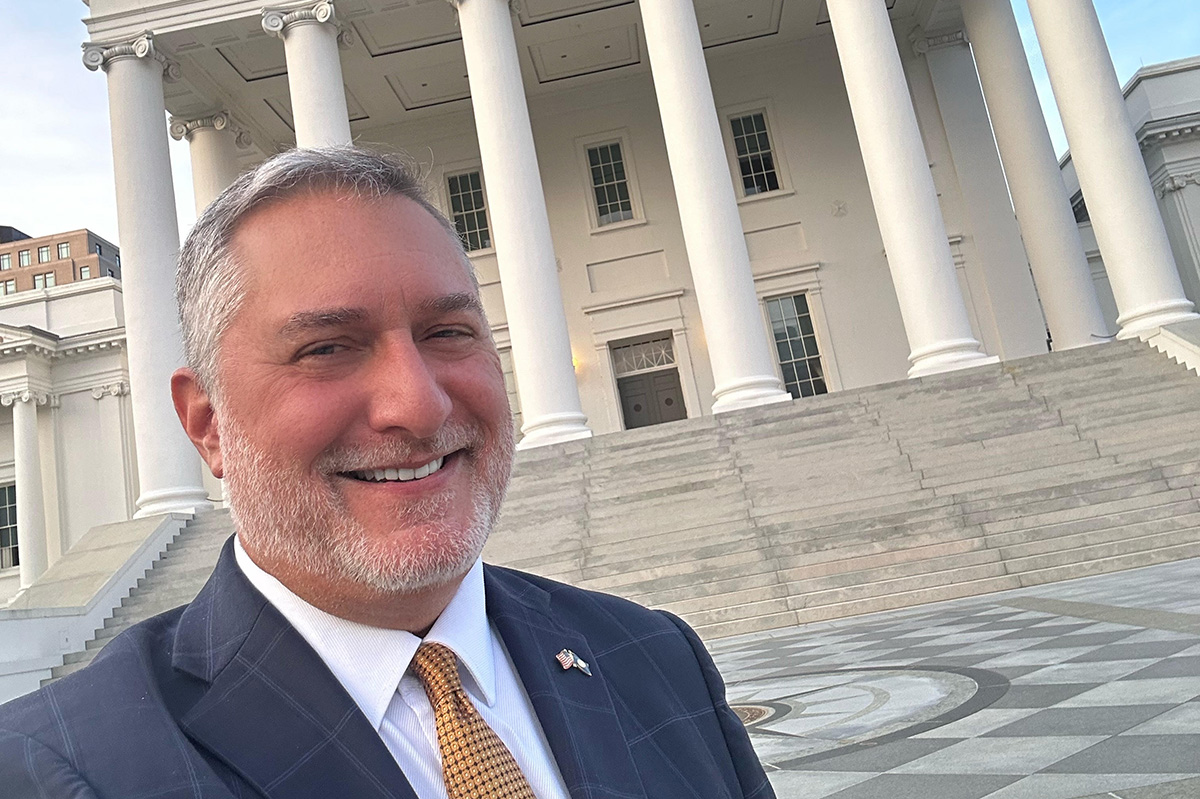
Less than a week after John Reid, the conservative gay radio talk show host from Richmond secured the Republican nomination for the office of lieutenant governor in Virginia, sensational allegations have surfaced, which he strongly denies, that he allegedly posted pornographic photos on social media.
According to the Virginia Mercury newspaper, the allegations surfaced when Virginia Gov. Glenn Youngkin’s office released a statement saying Youngkin contacted Reid on Friday, April 25, and asked him to withdraw his candidacy over reports that a social media account with Reid’s username included “pornographic content” that was “shared” with others.
“The governor was made aware late Thursday of the disturbing online content,” the Virginia Mercury quotes a Youngkin spokesperson as saying. “Friday morning, in a call with Mr. Reid, the governor asked him to step down as the lt. governor nominee,” the spokesperson is quoted as saying.
Reid responded to the allegations in an early Friday evening video he posted on his campaign’s Facebook page, calling the allegations “a totally fabricated internet lie” motivated by anti-gay bias.
“I can tell you that’s not my account and anyone on the internet can open accounts with the same or similar names as other people,” he stated in his video. “It’s predictable,” he added.
“But what I didn’t expect was the governor I have always supported to call and demand my resignation without even showing me the supposed evidence or offering me a chance to respond,” Reid states in his video.
He said he will not drop out of the lieutenant governor’s race and called the allegations against him just the latest in what he said was an ongoing effort by some in the Republican Party, especially conservative Christians, to force him out of politics.
“Let’s be honest,” he said. “it’s because I’m openly gay. And I have never backed down to the establishment, and will not,” he continued in his video message. “What happened today is another coordinated assassination attempt against me to force the first openly gay candidate off of a Virginia statewide ticket.”
Reid added, “It’s shameful, and I won’t back down, even though I know the plan is for the attacks to continue in this overt effort to make me toxic.”
Reid secured the GOP nomination for lieutenant governor last week after his only rival in the Republican primary, Fairfax County Supervisor Pat Herrity, dropped out of the race for health reasons.
By securing the nomination Reid became the first known openly gay candidate, Republican or Democrat, to be nominated for a statewide office in Virginia.
In an interview with the Washington Blade earlier this week Reid pointed out that he came out as gay in 1996 or 1997 on National Coming Out Day in his role as TV news anchor in Richmond, where he worked for 10 years.
Following that, Reid worked as a radio talk show host for the next eight years, promoting his ideas as a gay conservative Republican, up until shortly before he announced his candidacy for lieutenant governor, he told the Blade.
Reid’s video responding to the accusations against him can be accessed here.
Reid’s campaign website and statements he has released to the media acknowledge his status as a gay candidate but point out he has a long record of support for conservative Republican positions on a wide range of issues that are against the positions of most mainline LGBTQ rights organizations.
“I’m not a diversity hire,” he stated in a press release issued at the time he announced his candidacy in January. “I’m the most conservative and proven candidate running, and I’ve boldly stood up for our beliefs in a way that should make my personal life a total nonissue,” he stated.
A statement on his campaign website states “John is uniquely positioned to take the fight to the radical progressives head on as he continues his fight against boys in girls’ sports and the extreme trans agenda being forced upon our children.”
His campaign website statement on transgender issues concludes by saying, “And we must be blatant in saying that it is factually impossible for biological men or women to personally decide to change their gender. John believes in the right for grown adults to live their lives as they see fit, but not if they impose restrictions and obligations on others and not if any of their behavior sexualizes or grooms children.
Politics
George Santos sentenced to 87 months in prison for fraud case
Judge: ‘You got elected with your words, most of which were lies.’
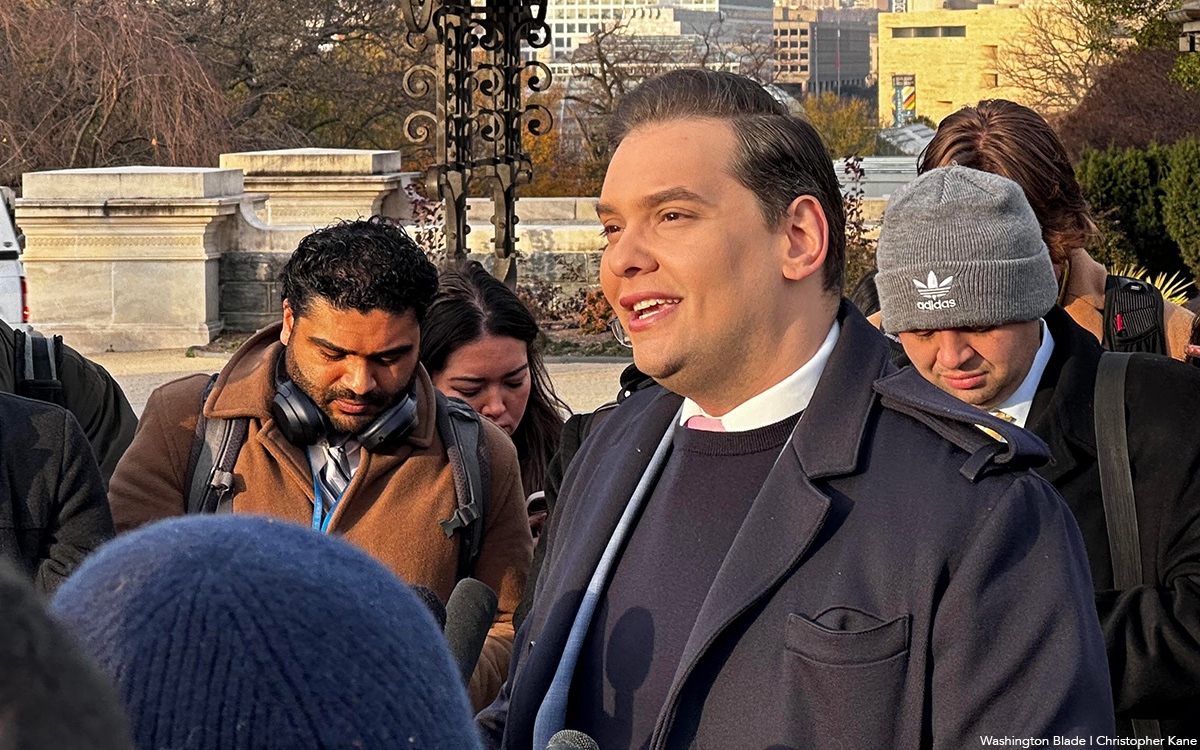
Disgraced former Republican congressman George Santos was sentenced to 87 months in prison on Friday, after pleading guilty last year to federal charges of wire fraud and aggravated identity theft.
“Mr. Santos, words have consequences,” said Judge Joanna Seybert of the U.S. District Court for the Eastern District of New York. “You got elected with your words, most of which were lies.”
The first openly gay GOP member of Congress, Santos became a laughing stock after revelations came to light about his extensive history of fabricating and exaggerating details about his life and career.
His colleagues voted in December 2023 to expel him from Congress. An investigation by the U.S. House Ethics Committee found that Santos had used pilfered campaign funds for cosmetic procedures, designer fashion, and OnlyFans.
Federal prosecutors, however, found evidence that “Mr. Santos stole from donors, used his campaign account for personal purchases, inflated his fund-raising numbers, lied about his wealth on congressional documents and committed unemployment fraud,” per the New York Times.
The former congressman told the paper this week that he would not ask for a pardon. Despite Santos’s loyalty to President Donald Trump, the president has made no indication that he would intervene in his legal troubles.
Maryland
A Baltimore theater educator lost jobs at Johns Hopkins and the Kennedy Center
Tavish Forsyth concluded they could not work for Trump

BY WESLEY CASE | Tavish Forsyth had come to a conclusion: They could not work for President Donald Trump.
So the 32-year-old Baltimore resident stripped down, turned on their camera, and lit their career on fire.
“F—— Donald Trump and f—— the Kennedy Center,” a naked Forsyth, an associate artistic lead at the Washington National Opera’s Opera Institute, which is run by the Kennedy Center, said in a video that went viral. The board of the nation’s leading cultural institution had elected Trump just weeks prior as its chairman after he gutted the board of members appointed by his predecessor, President Joe Biden.
The rest of this article can be read on the Baltimore Banner’s website.
-

 Federal Government3 days ago
Federal Government3 days agoHHS to retire 988 crisis lifeline for LGBTQ youth
-

 Opinions4 days ago
Opinions4 days agoDavid Hogg’s arrogant, self-indulgent stunt
-

 District of Columbia3 days ago
District of Columbia3 days agoD.C. police seek help in identifying suspect in anti-gay threats case
-

 Virginia4 days ago
Virginia4 days agoGay talk show host wins GOP nom for Va. lieutenant guv

